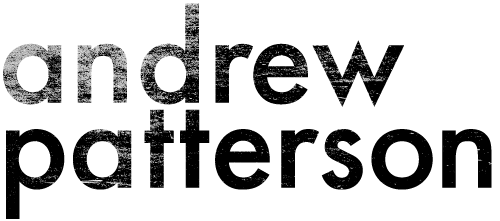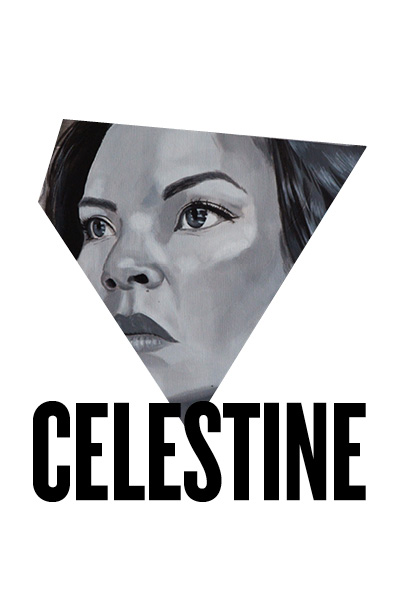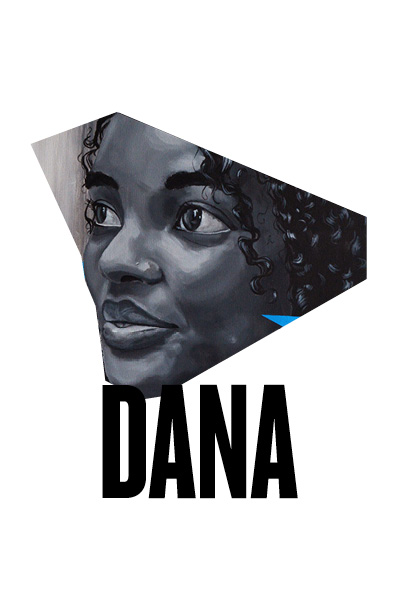A brief discussion with Nate Reinholds from my upcoming zine Mixed Blood Manifesto.
Andrew: Let me kick this off to give you something to chew on while you convalesce! The first thing I’ve like to establish with the portrait subjects is: How do you ‘identify’? No wrong answer, obviously.
Nate: How do I identify as in gender or just in general with race and such; all the realms of identity?
A: All the realms! I’ve been leaving it intentionally vague to try and get an ‘unbiased’ response. I don’t want to lead you haha, but I can say that people have responded with everything from gender to racial categories and nationality – basically just whatever comes to mind as the most comfortable for you, and we’ll go from there.
Nate: Okay, okay – so in that case I guess I’m not really sure how I identify. I’m a pretty lost person at times but I find some peace in not knowing/defining. As for gender and sexuality I’d say I’m a heterosexual male. Generally I leave it up to others to decide what race I am. I’m open to interpretation. Honestly if anything I’d identify most as a species. I’m human. It’s sounds cliche but honestly I find it easier to understand others like the way we try to understand animals and other species. It opens the conversation that you know not everyone or everything thinks like you, nor operates as you do. I forget a lot of the time that I am ‘mixed’, or that my parents are both white and black and are from two noticeably different places on this planet. Culturally my family is pretty distant from their roots, I’d say we’re culturally North American. I have uncles and aunts from India, China, England, all over the Caribbean, Canada, the US and Eastern Europe.
If anything, I don’t think we know how to identify ourselves. It’s as if we are only left with superficial categories that push the agenda of class and structure. Nothing that actually has to do with one’s true self. Culture, nationality, religion are becoming clearer and clearer that they are obsolete practices that don’t work anymore and have no place in society. A bit of a segue but I find identification or at least the way we do it today feeds into the human dysfunction. We do it to everything. You can even see it beginning to happen with the vaccines… there’s already a class structure building behind which vaccine you get and well if you’ve gotten COVID, you’re already at the bottom. We don’t hold the mental capacity yet, to identify as anything without judging one another wrongfully. The identities we create for ourselves are far from what/who we really are.
A: Lots to unpack here! Starting with the idea that there’s peace in not knowing/defining. In a weird way, I think that’s a privilege of being mixed-race – I share this feeling most of the time, and many of the other people participating in this project have mentioned something similar. I think for people who more readily identify with one racial background, there’s a sort of ingroup/outgroup pressure humming in the background (or sometimes very much in the foreground). Considering that ‘race’ itself is a construct of our own making, it’s all a bit of a mess. But yeah – interesting you say you leave it up to others, because it is a very contextual situation for folks who are visibly mixed or racially ambiguous.
I can relate, and I think it’s telling that a lot of folks I’ve spoken with identify nationality or even regional culture before they identify with ‘races’.
It’s also interesting to hear you describe the dysfunction associated with our need to identify things the way we do. I often make the parallel (to the chagrin of many) to how generally, with younger generations and more progressive folks, we’ve sort of finally arrived at a point where gender is recognized as more fluid or existing on a spectrum that isn’t fixed. We haven’t arrived at the same place consciously with other aspects of what compose identity, like race – and I think with people who are mixed race, there’s an opportunity to help others see that perhaps the way we value certain things, or what we emphasize as important needs to change. I mean, it’s kind of changing whether folks want it to or not.
Did you have a lot exposure growing up to any specific ‘traditional heritage’ associated with your family’s various backgrounds? You know, like food or music, or certain practices specific to any one ethnic group – or was your childhood pretty varied?
Nate: Man I love that you’re doing all of this. Its amazing how connected the majority of all the problems we face today really are. It feels like the missing pieces are finally aligning. It’s crazy but I’ve never really looked at it as a privilege but you’re right. I’m grateful and I’ll keep it at that, but would like to help find a balance. I do fear people will make the same mistake we’ve been making, especially when it comes to what seems to be in some cases the idolization of the ‘mixed’ race. People also seem to forget ‘mixed’ covers a lot more than just black and white. It pains me when ever I hear people put them selves down due to the colour of their skin and obviously, when they do it to others. For the first time in my life I’ve never received so many compliments about my hair, but at the same time to hear so many people complain about their own.. it truly feels like a flip. The thing is I know how that feels and would not want anyone else to be in that state of mind.
To answer your question I did, and it felt like I was exposed to a lot during the earlier days of my childhood. As I said I had a variety of cultures that flowed through my family. I got to celebrate a lot of cool traditions growing up and our family dinners would always be an eclectic mix of foods and traditions. It was the best. Even on my dad’s side which was much smaller than my mom’s. My dad’s parents were very Eastern European lol I barely understood them for most of my life because of their accents. I truly had access to so many different perspectives, including my parent’s. Though right around 2010 was when things began to fall apart. Everyone became very distant. Especially when my great uncles, great aunts and grandparents started to die. Along with them were a lot of our traditions and in result of that… Nothing’s been the same for a while.
I feel a lot of us are lost but I don’t know if it ever had to do with ever having a lack of culture or perhaps instead it’s all because of a new one being pushed onto us. The thing is as well, the more things change and the lies and corruption that come to the surface. The more I’ve been able to reflect and understand my family and tbh I’m beginning to see how messed up it’s been the whole time. Despite how good and right it felt as a kid. Almost feels like a therapy session but man if you ever wanna get into it I’d love to shed some light on this topic, there’s just a lot to say.
I think it’s a necessary conversation that has to be had in sake of the older generation, which we’ve unfortunately villainized as the ‘boomers’. They’ve been lied to longer than any of us and in result it’s inflicted a lot of pain and suffering which was passed down from their previous generation and then naturally onto ours. The vicious cycle of the human species. These are problems they still don’t recognize as problems, and instead of us forgetting about them – I believe it’s apart of our duty to bring them back into the light. They are a generation who grew up in the 60’s and 70’s, a time of hope and change. Their light was wrongfully stolen from them. They have a lot to offer, and if there is any proof of this, it’s the music and the art from their time that continues to live on and influence us to this day.
The system continues to feed off of them at the expense of their sanity and lives. Everytime I see my parents’ TV is set to the news or what ever channel that is, all I see are good people being taken advantage of.
A: Yeah, there’s a lot of neglect and apathy muddying the water out there for sure. I think there’s a notable difference, generationally – to your point, grandparents and parents who immigrated, or were first generation, or even in some cases just moved to a metropolitan area – they were forced into a period of rapid change. For you or me, or people who you might classify as millennials and younger, we’ve been born right into the churning water so to speak. We have our own issues, but maybe there’s an adaptability that comes from growing up during this era, having access to the internet, and even being mixed race. Because I mean, if you put aside the construct of race to the side, the only time races were really mixing for countless generations was during times of great upheaval or war. A lot of cultures have frowned on it.
I didn’t grow up with any ethnic traditions in particular beyond Canadian ones – but my parents felt it was important that I comprehend black history and also encouraged my interests in any cultures I was curious about. Japanese culture was always a huge draw for me, so they nurtured the spirit of curiosity whenever it popped up. But it’s hard for me to imagine older generations having that kind of flexibility and open-mindedness – sometimes through no fault of their own, really.
So to imagine what it must be like to be sort of the first wave that literally led to you and I – and how bewildering it must be now with how fast the world moves – it’s definitely daunting.
Nate: The thing is, it is possible for them to be up to speed and with the times. I’ve seen/met many people in their 60’s and sometimes 70’s who are woke enough to have these conversations constructively or are as tech savvy as the average millennial, sometimes even more savvy. A lot of them are from the film industry but with that kind of proof, its enough for me to say there’s a solution somewhere. It’s just hard to see so many elders stuck in their own shit. It truly is all very daunting.
The world – we’re deprived of one another.




